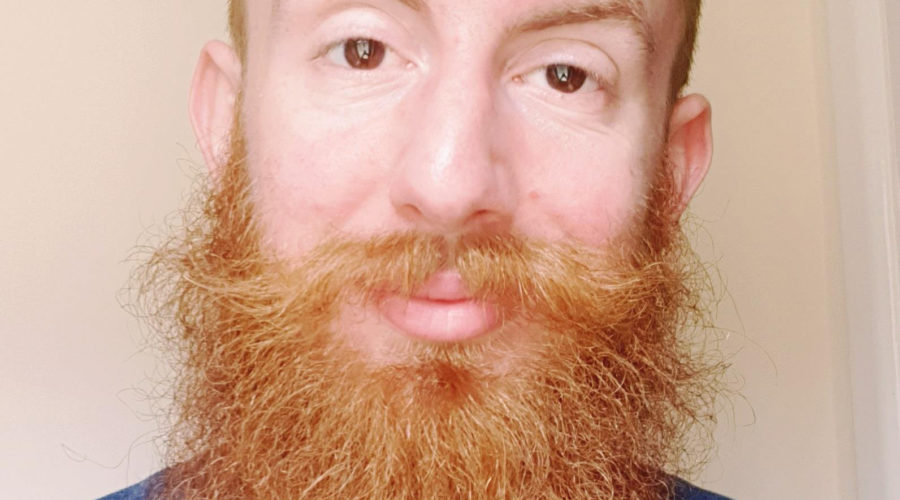A Day in the Life of Andy Neuvell

Andy joined 360-Services 8 months ago and currently works at a St Mungo’s accommodation based in Oxford. Even as a relatively new team member, he has a wealth of practical knowledge that has made him an invaluable, empathetic and professional security guard. Andy previously worked as a behavioural manager in a mental health facility. He comes to this line of work with his own personal experiences of homelessness. From both a professional and personal perspective, Andy focuses on creating relationships with residents and staff. He puts de-escalation and harm-reduction first. This creates a safe, communicative environment for everyone around him.
What drew you to working at 360-Services?
“I’ve worked with children, in health and social care, humanitarian aid and with mentally disabled people before, so I like working with a new group of people. I found the opportunity online and enjoy challenge and change, so I went for it.” Since becoming a day-time concierge, Andy has also trained and inducted new St Mungo’s staff. Beyond his title and daily tasks, he believes it’s essential he brings his previous work experience to the role; the job demands skills that can deal with conflict and emotions.
He strives to ensure members of staff engage and work together for the benefit of their residents. “I make sure relationships with residents are good and anyone who might not have experience working vulnerable people build those relationships. It can really save people and create a safer environment. You’ve got to treat everyone with compassion and respect.”
What does a typical day look like at St Mungo’s?
“When I arrive in the morning I’ll collect a detailed handover from the night staff. It could cover anything from the conflict that’s happened over night to people we haven’t seen in a few days. When I’ve gone over the handover I’ll start my basic set-up: patrol the area, answer emails, check the CCTV and do my keys jobs. This is also the opportunity to check in on particular residents and see if they’re okay. As well as the baseline job, you have to go above and beyond.”
St Mungo’s is one of the UK’s leading homeless charities and accommodates people from a range of challenging backgrounds that can include alcoholism, self-harm, suicide and abuse. A part of Andy’s concierge work is to ensure residents can access the facilities and help they need. He comes to St Mungo’s with an abundance of experience working with vulnerable people, and is adept in building communication and connections.”I’ll help get people out of their rooms for meetings with their key workers, help book any appointments or hospital trips. Alongside maintaining the security of the building, so much of the work is about engaging with people. It’s one of the best ways to deal with conflict and harm.”
What are some of the main challenges you face?
“When you’re working with people who might be violent or have mental health issues, you go into the work knowing you could get hurt. You’re facing real-life problems, and you don’t want a 26-year-old resident to feel as if you’re above them. That’s why you need to know that person and know how to communicate with them.” For all of the 360-Services’ team, prevention is one of the most critical parts of the job. Prevention can mean several things from monitoring the building internally and externally and the safety and wellbeing of everybody.
“You need to be able to de-escalate a situation and just talk with residents so you can prevent having to contact the police as a final measure. That’s why maintaining those relationships is so important. But I also think trying to make an upbeat and communal area for everyone is really helpful, especially during Covid. A bit of compassion and comedy can go a long way.”
How has working during Covid-19 challenged you?
“We had a resident who tested positive and became a risk, but because of their mental health and experiences with paranoia, it was difficult for them to self-isolate.” Working during Covid is a particularly demanding context for Andy. As well as the preliminary guidelines he has to follow concerning social distancing, he also has to communicate with and safeguard residents and staff if they are exposed to the virus. “I wear PPE and make sure I deep-clean as I go, especially if a resident comes into contact with an area. When you’re working with any vulnerable people and their mental health isn’t there, it can be tough to explain to them what they need to do. You just have to approach them humanely and engage with them.” Again, those relationships and lines of communication are a crucial tool for safety and prevention.
What has been your most memorable work moment?
“There was a resident in distress who was violent, angry and depressed. I was able to just engage with them, sit them down, and talk to them. It meant we didn’t have to contact the police and they were able to talk to a staff member. It was a key moment for me. They were able to open up, relax and find a way of coping that didn’t depend upon substance abuse.”
Andy’s breadth of experience and knowledge goes a long way to creating a safe environment for everyone at his St Mungo’s project. Through his engagement, collaboration, and leadership, he has helped create a space to facilitate residents’ recovery. His ethos of going above and beyond has helped him become the efficient, compassionate concierge he is.
We are experts in CCTV Installation and monitoring.
Contact 360 Services regarding any of our services using the form below.
Suite C1 Water House
Texcel Business Park
Thames Road DA1 4TQ
145-157 St John Street
London
EC1V 4PY
Riverside Works, Unit 9, Severn Road GL1 2LE
Unit 11, Isis Trading Estate, Shirvenham Road, Swindon, SN21 2PG
Park House, Wilmington Street, Leeds, LS7 2BP
All rights reserved. Developed by Digital360.mobi
